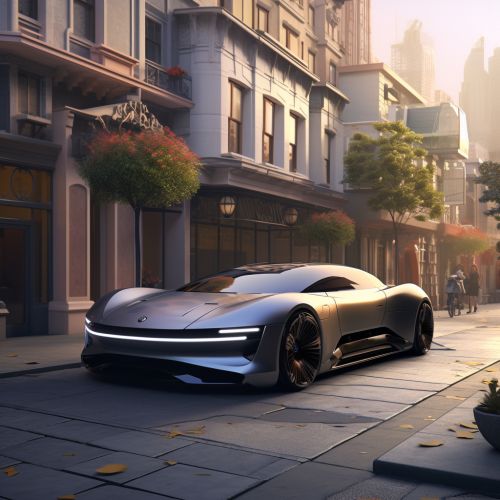Hybrid Vehicle
Overview
A hybrid vehicle is a type of vehicle that uses two or more distinct power sources to move. The term most commonly refers to hybrid electric vehicles (HEVs), which combine an internal combustion engine and one or more electric motors. However, other mechanisms to capture and utilize energy are also included.
History
The concept of a hybrid vehicle has been known for a long time. Ferdinand Porsche, founder of the sports car company by the same name, developed a series hybrid using two electric motors and a gasoline engine way back in 1899. However, the first commercially available hybrid gasoline-electric car was the Toyota Prius, launched in Japan in 1997, and worldwide in 2000.
Design and Functionality
Hybrid vehicles are designed to overcome the shortcomings of conventional vehicles and electric vehicles. Conventional vehicles are less energy efficient and emit more pollutants, but have a long range and quick refueling. On the other hand, electric vehicles are energy efficient and emit fewer pollutants, but suffer from a short range and long recharge times. Hybrid vehicles combine the advantages of both.


Types of Hybrid Vehicles
There are three main types of hybrid vehicles based on the powertrain – series, parallel, and series-parallel. In a series hybrid, only the electric motor drives the wheels. The gasoline engine only generates electricity for the motor or recharges the battery. In a parallel hybrid, both the engine and the motor can drive the wheels. The series-parallel hybrid is a combination of the two, with the flexibility to operate in either mode.
Advantages and Disadvantages
Hybrid vehicles offer several advantages over conventional vehicles. They are more energy efficient, emit fewer pollutants, offer a similar range and refueling time, and can recapture energy during braking. However, they are more expensive and complex than conventional vehicles, and the battery life and disposal can be issues.
Future of Hybrid Vehicles
With the increasing concern over the environment and depletion of fossil fuels, the future of hybrid vehicles looks promising. Many countries are promoting the use of hybrid vehicles through various incentives. However, the development of pure electric vehicles and fuel cell vehicles could pose a challenge to hybrid vehicles.
